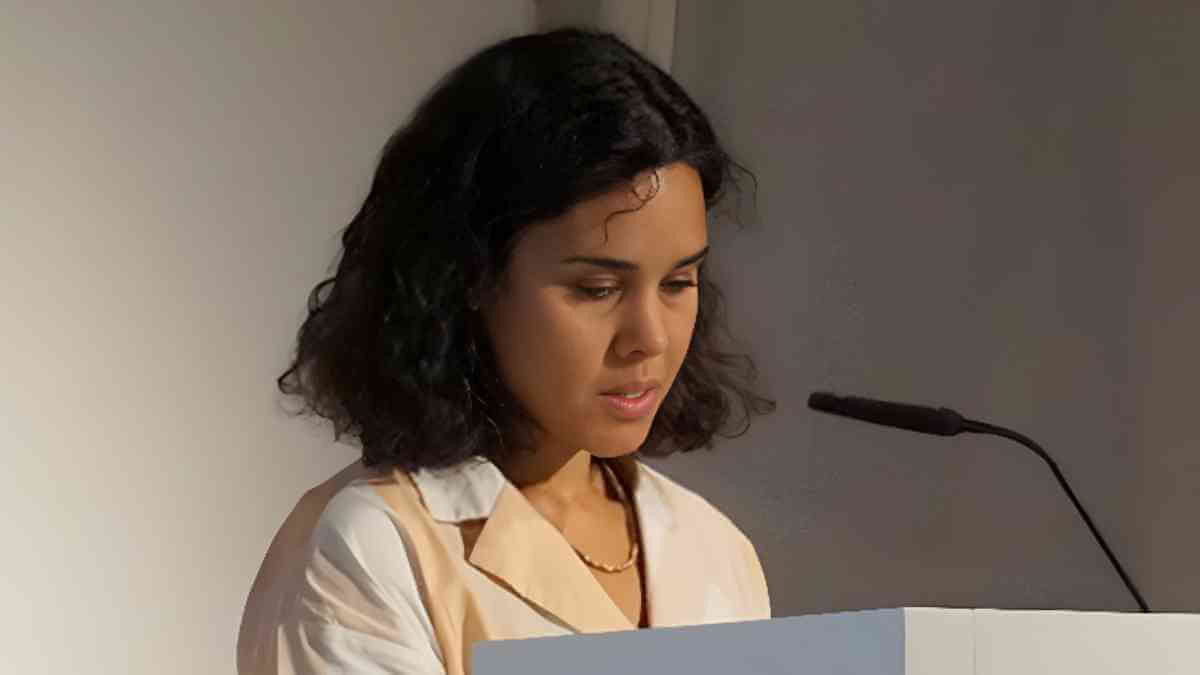Lara Choksey: Exploring Literature, Science, and the Politics of Knowledge

Lara Choksey has become a notable figure in the fields of postcolonial studies, literature, and the intersections of science and culture. Her work stands at the crossroads of literature, philosophy, and technology, offering fresh ways of understanding how stories, genes, and social realities connect. As a lecturer in Colonial and Postcolonial Literatures at University College London, she has carved out a distinctive intellectual path. With a background that also includes journalism, Choksey’s contributions reach beyond academic discourse into pressing conversations about race, power, climate, and health.
Early Background and Journalism
Before entering academia, Lara Choksey worked as a journalist for The Statesman in Kolkata. Her reporting covered issues linked to development, health, and climate, themes that continue to shape her later intellectual focus. Journalism provided her with direct exposure to the complexities of lived realities, from economic inequality to environmental crisis. The skills she developed as a reporter—critical analysis, clarity of expression, and an ability to communicate complex ideas—have clearly informed her academic style. While many scholars move directly from education into research, Choksey’s early career grounded her in the urgency of public debate. This experience helped her connect abstract theories to real-world problems, an aspect that distinguishes her scholarly voice.
Academic Journey and Institutional Role
Lara Choksey is now a lecturer in Colonial and Postcolonial Literatures at University College London, one of the world’s leading centres for research and teaching. She is also associated with the Sarah Parker Remond Centre for the Study of Racism and Racialisation, where she contributes to a wider community examining how race and power operate across histories and societies. Her teaching and research focus on the legacies of colonialism, the politics of knowledge, and the ways in which literature both reflects and reshapes human understanding. By situating her work at the interface of science and the humanities, she challenges conventional boundaries between disciplines.
Research Interests
At the heart of Lara Choksey’s research is the question of how literature responds to and shapes scientific thought. She explores how stories—whether in novels, policy documents, or media reports—create frameworks for understanding science and technology. In particular, her interest in genomics sets her apart from many traditional literary scholars. Genomic science is often framed as objective, precise, and detached from culture. Choksey argues, however, that genomic knowledge is deeply embedded in cultural narratives. These narratives influence how societies think about health, race, inheritance, and the very idea of what it means to be human.
Her research also examines realism in literature, particularly how realist forms adapt to scientific and political changes. She questions whether realism as a literary mode can keep pace with the rapidly evolving sciences of genetics and climate, or whether new narrative strategies are required. Through this lens, she situates literature as an essential tool for understanding the world, rather than a mere reflection of it.
Key Publication: Narrative in the Age of the Genome
In 2021, Lara Choksey published her landmark book Narrative in the Age of the Genome. This work analyses how genomic science reshapes our sense of humanity and how narratives, in turn, shape the interpretation of genetics. She demonstrates that genomes are not only biological facts but also cultural artefacts. Scientists, policymakers, and writers construct stories about genomes that influence social expectations and political decisions.
The book explores how genomic narratives intersect with race, colonial histories, and biopolitics. For instance, genomic projects often frame humanity in universal terms, yet at the same time rely on categories rooted in histories of racial classification. Choksey argues that such contradictions reveal the political nature of science. By placing literature in conversation with genomics, she shows how novels and cultural texts provide tools for questioning the assumptions embedded in scientific discourse.
Narrative in the Age of the Genome has been praised for its originality and depth, offering a framework for understanding how the sciences of life are intertwined with the politics of storytelling. It has positioned Choksey as a critical thinker able to connect literature with urgent ethical debates.
Contributions to Postcolonial Studies
Beyond genomics, Lara Choksey’s work contributes to broader discussions in postcolonial literature and theory. Postcolonial studies investigate the cultural, political, and economic legacies of colonial rule, particularly in relation to knowledge and representation. Choksey highlights how science and colonialism often developed hand in hand, with knowledge about race, biology, and environment being used to justify imperial dominance.
By revisiting literature through this lens, she demonstrates how novels and other cultural texts both challenge and reinforce colonial knowledge systems. Her analysis reveals how contemporary literature grapples with ongoing legacies of empire, especially in relation to global health, environmental crisis, and racial inequality. She insists that literature does not merely record these issues but actively participates in shaping their meaning.
Public Engagement and Events
Lara Choksey frequently participates in public discussions that connect academic research to wider audiences. In October 2024, she took part in a conversation with Vron Ware and Jim Scown, where they discussed the links between soil, colonialism, and imperialism. This event reflected her interest in how ecological issues intersect with histories of power. Soil, as both a material and a metaphor, becomes a site where questions of belonging, exploitation, and survival are negotiated.
Her talks and seminars often highlight how literature, science, and colonialism are not separate fields but overlapping terrains. By making these connections, she engages students, scholars, and the public in rethinking how knowledge is produced and why it matters.
Recent Scholarship
In 2025, Lara Choksey co-authored a scholarly article that examined strained encounters of the anthropocene, exploring how preservation, ecology, and politics intersect in the current climate crisis. This recent publication continues her pattern of addressing urgent issues through interdisciplinary research. The anthropocene—the proposed geological epoch defined by human impact on the planet—raises questions about who counts as human, whose impact is measured, and whose stories are told. Choksey’s contribution brings literature into dialogue with science and policy, showing that narratives remain central to environmental thought.
Approach to Teaching
As a lecturer, Lara Choksey is committed to helping students understand the entanglements between literature, science, and politics. She encourages critical thinking, urging her students to ask not only what texts say but also how they shape the world. Her courses often include diverse authors and perspectives, ensuring that students engage with voices beyond the traditional canon. This inclusive approach reflects her belief that literature is a space where marginalised histories and suppressed stories can be heard.
Students under her guidance learn to see literature as both an art form and a political practice. By exploring how novels interact with race, genetics, and colonialism, they are prepared to think critically about the narratives that structure contemporary society.
Influence on Contemporary Thought
The influence of Lara Choksey’s work lies in her ability to cross boundaries. She refuses to confine herself to literature alone, instead placing literature in conversation with science, politics, and philosophy. This interdisciplinary approach is increasingly important in today’s world, where complex challenges such as climate change, global health crises, and technological transformation demand multiple perspectives.
Her insistence on connecting literature with science challenges the idea that the humanities are separate from pressing social issues. By showing how narratives shape scientific interpretation, she demonstrates that literature has a role to play in debates about genetics, climate, and race.
Why Lara Choksey Matters Today
At a time when societies grapple with questions of health inequality, environmental crisis, and genetic determinism, the work of Lara Choksey provides crucial insights. She reminds us that knowledge is never neutral. Science may present itself as objective, yet it is always entangled with politics, culture, and history. Literature offers tools to uncover these entanglements, making visible the stories that underpin scientific authority.
Choksey’s research is particularly relevant in the age of genomic medicine. As genetic technologies expand into everyday healthcare, questions about privacy, race, and inequality become urgent. Her analysis warns against uncritical acceptance of genomic narratives and encourages critical engagement with how these stories are told.
Furthermore, her engagement with postcolonial theory highlights the persistence of empire in contemporary knowledge systems. In a world still shaped by colonial legacies, her work calls for vigilance against forms of exclusion and domination embedded within science and literature.
Future Directions
Looking ahead, Lara Choksey’s scholarship is likely to continue expanding across disciplines. Her focus on literature and science provides a foundation for engaging with new debates around artificial intelligence, biotechnology, and ecological crisis. As these fields develop, narratives will remain central to how societies interpret change. Choksey’s ability to bridge literature and science ensures that her voice will remain significant in shaping intellectual debates.
Her involvement with public events also suggests a continued commitment to accessibility. Rather than confining her research to academia, she engages with wider audiences, ensuring that her insights inform social and political discussions. This public-facing aspect of her work enhances her influence, making her an important thinker not only for scholars but also for broader society.
Conclusion
Lara Choksey stands as a leading thinker at the intersection of literature, science, and politics. From her early career in journalism to her current role as a lecturer and author, she has consistently sought to connect ideas with real-world issues. Her book Narrative in the Age of the Genome exemplifies her ability to link scientific developments with cultural analysis, while her wider scholarship illuminates the ongoing legacies of colonialism in knowledge production.
By insisting that literature is central to understanding science and society, she challenges conventional boundaries and provides new tools for critical thought. Her work demonstrates that narratives are not simply stories but powerful frameworks that shape how societies understand health, race, environment, and humanity itself.



